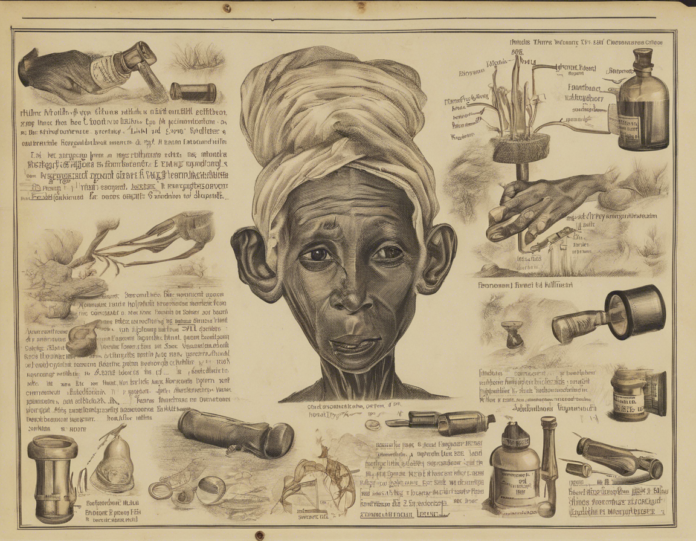The term “fistula” refers to an abnormal connection or passageway that forms between two organs or vessels that usually do not connect. A fistula can develop in various parts of the body, such as the digestive tract, urinary tract, or skin. Fistulas can arise from various causes, including injury, infection, inflammation, or surgery. They can be debilitating and have a significant impact on a person’s quality of life, leading to symptoms such as pain, infection, and discomfort.
While conventional medical treatments for fistulas often involve surgery or medications to manage symptoms and prevent complications, some individuals seek alternative or complementary approaches to address fistulas. Homeopathic medicine, a system of alternative medicine based on the principle of “like cures like,” offers a holistic and individualized approach to healing that aims to stimulate the body’s natural healing processes. Homeopathic remedies are derived from natural substances and are prescribed based on the specific symptoms and characteristics of the individual.
In this article, we will explore the use of homeopathic medicine in the treatment of fistulas, including how homeopathy works, common remedies for fistulas, tips for using homeopathy, and other complementary approaches that may support healing. Additionally, we will address some frequently asked questions about using homeopathic medicine for fistulas.
How Homeopathy Works
Homeopathy is based on the principle of “like cures like,” which means that a substance that causes symptoms in a healthy person can be used to treat similar symptoms in a person who is unwell. Homeopathic remedies are highly diluted substances that are prepared through a process of potentization, which is believed to enhance their healing properties while minimizing potential side effects.
Homeopathy considers the individual as a whole, taking into account not only the physical symptoms but also the person’s mental, emotional, and spiritual well-being. A homeopathic practitioner will conduct a detailed assessment of the person’s symptoms, including the location and characteristics of the fistula, associated pain, discharge, and any aggravating or alleviating factors.
Based on this assessment, the practitioner will prescribe a homeopathic remedy that matches the person’s unique symptom picture. Homeopathic remedies for fistulas may help reduce inflammation, promote healing of the affected tissues, and alleviate associated symptoms such as pain, discharge, and discomfort.
Common Remedies for Fistulas
There are several homeopathic remedies that may be indicated for the treatment of fistulas, depending on the individual’s specific symptoms and overall health. Some common remedies that are used in the management of fistulas include:
-
Silicea: This remedy is often indicated for chronic fistulas with thin, foul-smelling discharge. It may help promote the expulsion of foreign bodies or pus from the fistula tract and support healing of the affected tissue.
-
Hepar Sulph: This remedy is useful for fistulas that are painful to touch and may be associated with abscess formation. It may help reduce inflammation, control infection, and promote drainage of pus.
-
Calcarea Sulph: This remedy is recommended for fistulas that are slow to heal and may have yellow, purulent discharge. It can support the body’s natural healing processes and reduce the risk of infection.
-
Myristica Sebifera: This remedy is indicated for fistulas with intense, throbbing pain and suppuration. It may help promote the expulsion of pus and promote healing of the affected tissue.
-
Mercurius Corrosivus: This remedy is useful for fistulas with copious, foul-smelling discharge and intense burning pain. It may help reduce inflammation, control infection, and alleviate pain.
It is important to note that homeopathic remedies should be prescribed by a qualified practitioner based on a thorough evaluation of the individual’s symptoms and overall health. Self-prescribing homeopathic remedies for fistulas may not yield the desired results and could potentially exacerbate the condition.
Tips for Using Homeopathy
When using homeopathic medicine for fistulas, consider the following tips to optimize the effectiveness of treatment:
-
Consult a qualified homeopathic practitioner: A trained homeopath can conduct a detailed assessment of your symptoms and prescribe the most appropriate remedy for your individual case.
-
Follow the prescribed dosage: Homeopathic remedies are typically administered in highly diluted forms, and frequent repetition may be necessary for optimal results. Follow your practitioner’s instructions regarding dosage and frequency of administration.
-
Monitor your symptoms: Keep track of any changes in your symptoms, such as improvement in pain, reduction in discharge, or healing of the fistula tract. This information can help your practitioner adjust the treatment plan as needed.
-
Maintain open communication: Inform your homeopath about any changes in your condition, including new symptoms, aggravations, or side effects. Open communication can help ensure that your treatment plan is tailored to your evolving needs.
-
Support your overall health: In addition to homeopathic treatment, focus on maintaining a healthy lifestyle, including a balanced diet, regular exercise, stress management, and adequate rest. These factors can support your body’s natural healing processes and enhance the effectiveness of homeopathic remedies.
Other Complementary Approaches
In addition to homeopathic medicine, several complementary approaches may support the healing of fistulas and promote overall well-being. These include:
-
Herbal medicine: Certain herbs and botanical extracts may have anti-inflammatory, antimicrobial, and wound-healing properties that can complement homeopathic treatment for fistulas. Consult a qualified herbalist for personalized recommendations.
-
Nutritional therapy: A balanced diet rich in vitamins, minerals, and essential nutrients can support tissue repair, reduce inflammation, and enhance immune function. Work with a nutritionist to develop a dietary plan that meets your individual needs.
-
Mind-body techniques: Practices such as meditation, yoga, and deep breathing exercises can help reduce stress, improve mental clarity, and promote relaxation, which may benefit overall healing and well-being.
-
Conventional medical care: While exploring alternative and complementary approaches, it is essential to continue working with your healthcare provider to monitor your condition, address any complications, and ensure comprehensive care.
Frequently Asked Questions (FAQs)
-
Can homeopathy cure fistulas completely?
Homeopathy can help manage symptoms, promote healing, and support overall well-being in individuals with fistulas. However, the extent of healing and resolution of fistulas may vary depending on the individual’s specific condition and response to treatment. -
Are there any side effects of using homeopathic remedies for fistulas?
Homeopathic remedies are generally considered safe when prescribed by a qualified practitioner. Adverse effects are rare, but individual sensitivities or aggravations of symptoms may occur. Consult your homeopath if you experience any new or worsening symptoms. -
How long does it take to see improvement with homeopathic treatment for fistulas?
The timeline for improvement with homeopathic treatment can vary depending on the individual’s condition, the severity of the fistula, and other factors. Some people may experience relief of symptoms within a few weeks, while others may require longer-term treatment for lasting results. -
Can I use homeopathic remedies alongside conventional medical treatments for fistulas?
It is important to inform all healthcare providers involved in your care about any complementary or alternative treatments you are using. Homeopathy can be used alongside conventional medical treatments, but close coordination and communication between practitioners are recommended. -
Are there any lifestyle changes that can support the healing of fistulas alongside homeopathic treatment?
Maintaining a healthy lifestyle, including a balanced diet, regular exercise, stress management, and proper wound care, can support the healing of fistulas. Consult with healthcare providers and holistic practitioners for personalized recommendations.
In conclusion, homeopathic medicine offers a gentle, individualized approach to treating fistulas that focuses on stimulating the body’s innate healing mechanisms. By working with a qualified homeopathic practitioner, individuals with fistulas can explore the potential benefits of homeopathy as part of a comprehensive treatment plan. It is essential to approach homeopathic treatment for fistulas with patience, openness, and a commitment to supporting overall health and well-being.






